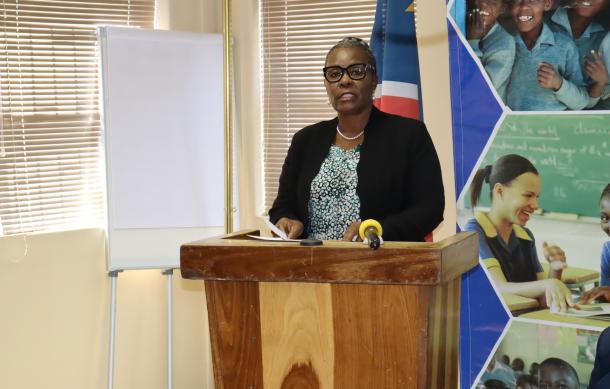
The Ministry of Education, Arts, and Culture has announced the commencement of the Basic Education Act (Act No. 3) of 2020.
The Act has been in operation since the fifth of October this year.
This legislation replaces the Education Act 2001 (Act No. 16 of 2001) and is aimed at aligning it with Namibia's commitment to meeting the educational aspirations of all its citizens.
At the announcement, Minister of Education Anna Nghipondoka said the new act does not only address basic education but also adult education and lifelong learning, reflecting the diverse needs of society.
''The principles of the new Education Act are to promote and regulate free and compulsory basic education; to ensure inclusive quality education and lifelong learning; to promote and protect the rights of learners to education; and to provide for the establishment, accreditation, registration, governance, and management of state and private schools, as well as hostels. It aspires to create a totally integrated, unified, flexible, and high-quality education and training system by the year 2030, preparing Namibian learners for a rapidly changing global environment.''
According to the new act, the age of compulsory attendance in school has shifted from 16 to 18 years, specifically addressing the right of learners to transfer under certain circumstances.
''There is a section dedicated to ensuring that learners with Special Educational Needs and Difficulties (SEND) are accommodated within the basic education system. The Act strongly emphasizes the prevention and management of learner pregnancy and a safe and healthy school environment, including school health services and outlining minimum standards for schools and hostels.''
In addition, the act places a strong focus on improved management and quality assurance in schools by providing support for underperforming schools.
The entire Act is operationalised, with the exception of Section 14: Integrated Early Childhood Development, which the ministry will pronounce itself in due course regarding its operationalisation.
The ministry is expected to embark on an advocacy campaign regarding the new act countrywide next year.





